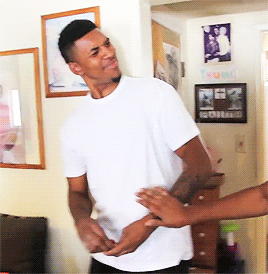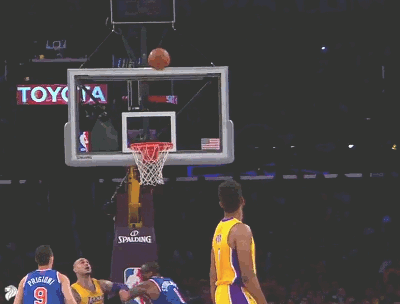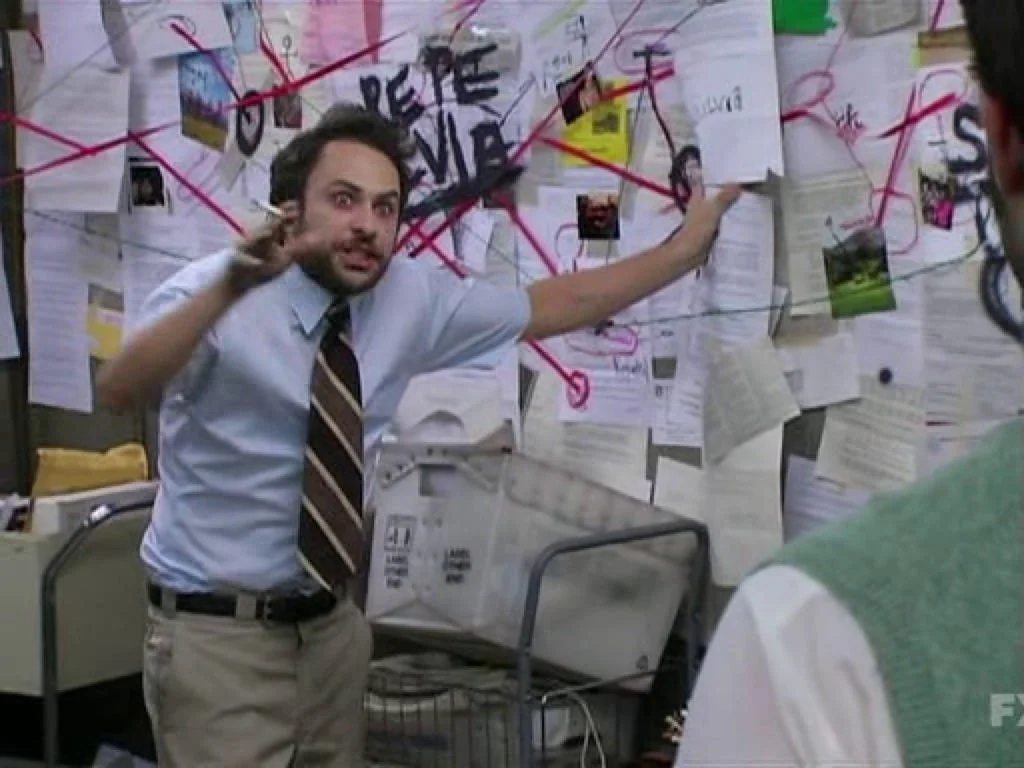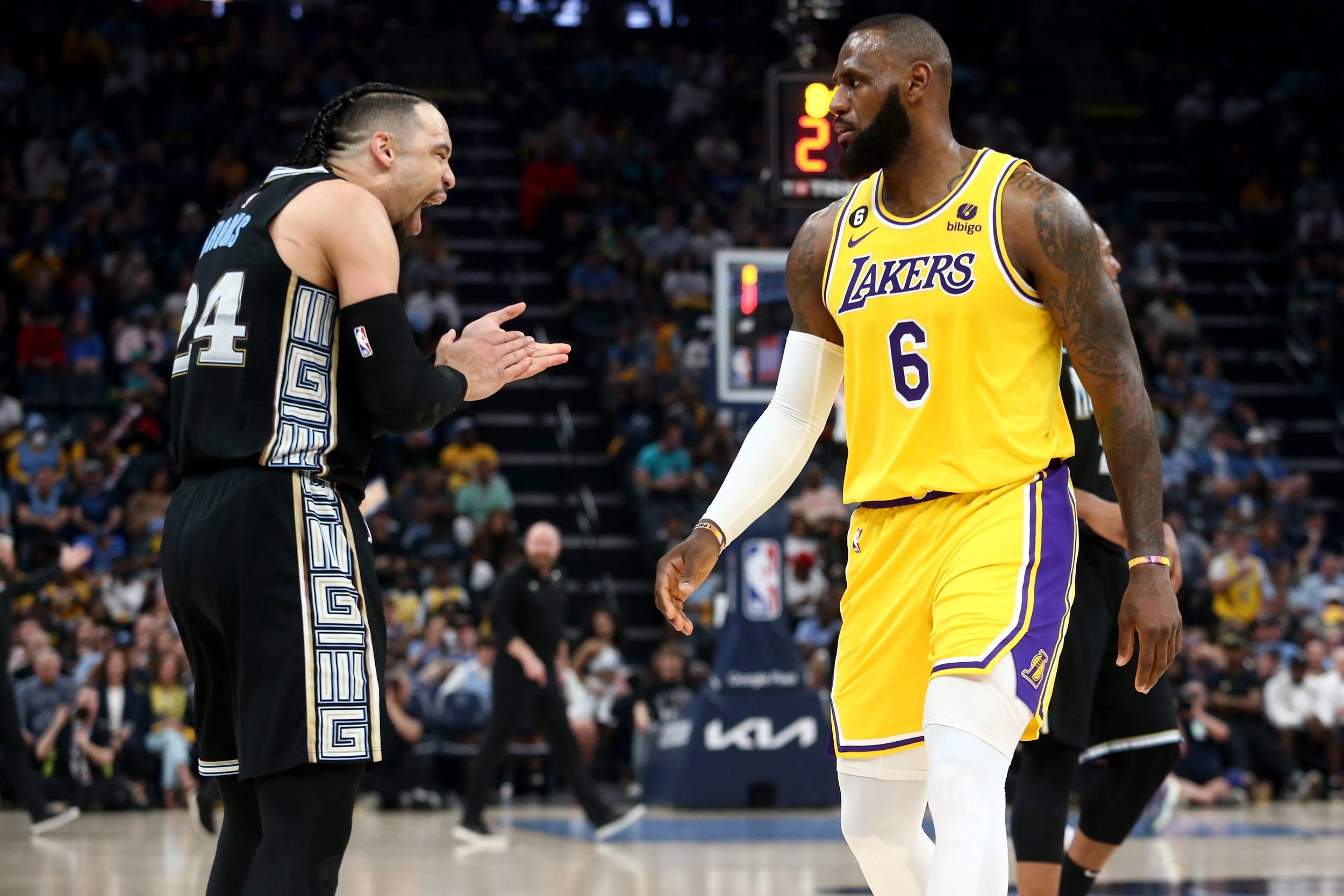The NBA is Reality TV
And we love the drama!
The NBA is drama, and I’ve always been drawn to its most dramatic players. Allen Iverson stepping over Tyronn Lue. Carmelo Anthony as “Hoodie Melo.” Everything J.R. Smith has ever done, including but not limited to him throwing soup on a coach and going permanently shirtless after winning his first championship with the Cleveland Cavaliers. And then there’s Nick Young, better known as ‘‘Swaggy P,” whose antics literally turned him into two of the most iconic memes of all time: (1) the “???” reaction, and (2) Young turning around with his arms raised as he very clearly missed a three he assumed he made.
With a media-industrial complex fueled by narrative, the NBA has always had its characters. And as social media has evolved into 24/7 surveillance and documentation, we know more about these characters than ever before. They’re a part of our lives like never before. We see them more than our families—or at least alongside our families. Beyond their stats, we know players’ children, romantic partners, favorite video games, and where and how they decompress after games.
We even see players’ friends’ Instagram Lives. For example, Memphis Grizzlies guard Ja Morant was recently seen on his friend’s livestream flashing a gun months after his involvement in a similar gun-related incident where the NBA suspended him for eight games. At that time, he also voluntarily stepped away from the team.
As the news broke of Morant flashing a gun for the second time, content creators—also known as NBA fans—wielded their familiarity with the Grizzlies all-star to cook up a flurry of memes about the incident. The running joke during both episodes has been fans calling him “Ja Wick” with some even photoshopping Morant’s face on the Keanu Reeves character’s body.
“The name-calling and meme generation in NBA social media has become both cottage industry and a growing, dimension-erasing monster that affects, flattens, and compounds the public opinion of stars,” Kahron Spearman writes for the Daily Dot’s Presser. “Players’ perception within social media—somehow simultaneously ephemeral and lasting—is now almost as important as their real-life on-court play.”
One of the only other places where I see this kind of drama unfold, as well as the content mill that comes with it, is Bravo TV—home of the Real Housewives franchise, Vanderpump Rules, and Summer House. Comparing the NBA with reality television isn’t new, nor is it farfetched to mention the similarities between the two.
In addition to NBA fans asserting the league’s storylines are reality TV, one Bravo fan recently tweeted that her feelings about the much-anticipated, three-part Vanderpump Rules reunion must be how men feel about the NBA Finals. And as a man who is desperately looking forward to both, I couldn’t agree more.
My TV diet consists almost exclusively of reality TV and basketball. After Elizabeth and I stop working for the day, we plop down on the couch with only enough energy to immerse ourselves in worlds that require nothing of us. Being required to follow a complex plot, look for clues and symbols, and keep up with a cast of multidimensional characters would surely kill us both.
After watching Elizabeth give someone a full, 20-minute breakdown of “Scandoval" the other day, I’m fully aware that’s how others might view Bravo shows or even the different NBA Playoffs storylines. But as my capacity for seriousness has dwindled, characters in these worlds have become, as Spearman describes, “unreal persons valuable only for unserious consumption.”
Elizabeth explaining “Scandoval”
No one feels less real in the NBA universe than LeBron James. He is both larger than life and also a cartoon. Entire Twitter threads and YouTube compilation videos are dedicated to tracing his history of white lies, including one of my all-time favorite moments where James pulled up to an interview holding Alex Haley’s The Autobiography of Malcolm X. When asked his biggest takeaway from the book, all LeBron could muster is that Malcolm X was “a very smart man” and he used the word “negro” a lot.
But during the first round of this year’s playoffs, LeBron went toe-to-toe with an actual character: the Grizzlies’ Dillon Brooks. In addition to sporting a perm that would make Katt Williams proud toward the end of the regular season, Brooks loves a one-liner. “I don’t care; he’s old,” Brooks said about LeBron after Memphis tied its playoff series against James’ Lakers. “I poke bears. I don’t respect no one until they come and give me 40 [points].”
Petre Thomas, USA Today Sports
Brooks went on to get ejected in Game 3 for hitting LeBron in the groin before the Lakers closed out the series in seven games beating the Grizzlies by 40 in the final matchup. While Brooks blamed the media for making him a “villain,” James posted in his Instagram caption, “If you ever see me fighting in the forest with a Grizzly bear, HELP THE BEAR 👑.”
Through tweets, headlines, memes, and in-game coverage, fans watched this drama unfold from start to finish. The series became less about the Lakers versus the Grizzlies and more about LeBron James versus Dillon Brooks. The characters took precedence.
As sports radio host Tim Donnelly shared on his show, “If you don’t listen to the names and you hear someone talking about the NBA, it sounds a lot like they’re talking about Jersey Shore or Real World or the Real Housewives of wherever.”
I love basketball as a sport, but the mess keeps me engaged daily. I keep up with Denver Nuggets basketball like people keep up with the Kardashians. I consume any interview with players or coaches I come across and cling to their best lines. There’s a network of Nuggets podcasts. There’s Nuggets Twitter where journalists I’ve started to recognize live-tweet every game. I even follow strangers’ fan accounts.
As Elizabeth and I have gotten more into Vanderpump Rules this year because of “Scandoval,” we’ve relied on the Bravo community to get us caught up. For those who aren’t familiar, “Scandoval” is “the revelation that Vanderpump Rules cast member Tom Sandoval had been cheating on his partner of close to a decade, Ariana Madix, with Raquel [Rachel] Leviss, Ariana’s best friend and confidant (and the ex-fianceé of Sandoval’s friend, DJ James Kennedy).”
In addition to watching the first and last episode of every season leading up to this current one, we’ve watched TikTok videos, scoured the #Scandoval and #PumpRules hashtags, and listened to cast members’ podcasts. So when last week’s season finale came around, we could fully engage. After the episode, we were beside ourselves when YouTube TV crashed during Ariana’s much-anticipated solo appearance on Watch What Happens Live with Andy Cohen.
Simultaneously, people on my Twitter timeline had been watching Game 1 of the Miami Heat-Boston Celtics Eastern Conference Finals matchup and were upset YouTube TV crashed for them too.
I’d like to think my love for basketball and reality TV—and the mess they bring—overpowered the servers. But mostly I just think about Jason Parham’s words for WIRED: “Today, enjoying reality TV is a matter of your subjective view, the convenience of what you choose to buy into or not.” Parham continues, “It no longer matters how believable a storyline or character is, but instead who it is real to.”
And last week, enough people believed in their respective worlds to break part of the Internet—even for just a little. Because we all want to be involved. These worlds require nothing of us but ourselves and an appetite for performance; faith to believe the unreal might actually be the most real, the things we share. And in that, the unserious becomes everything but.



